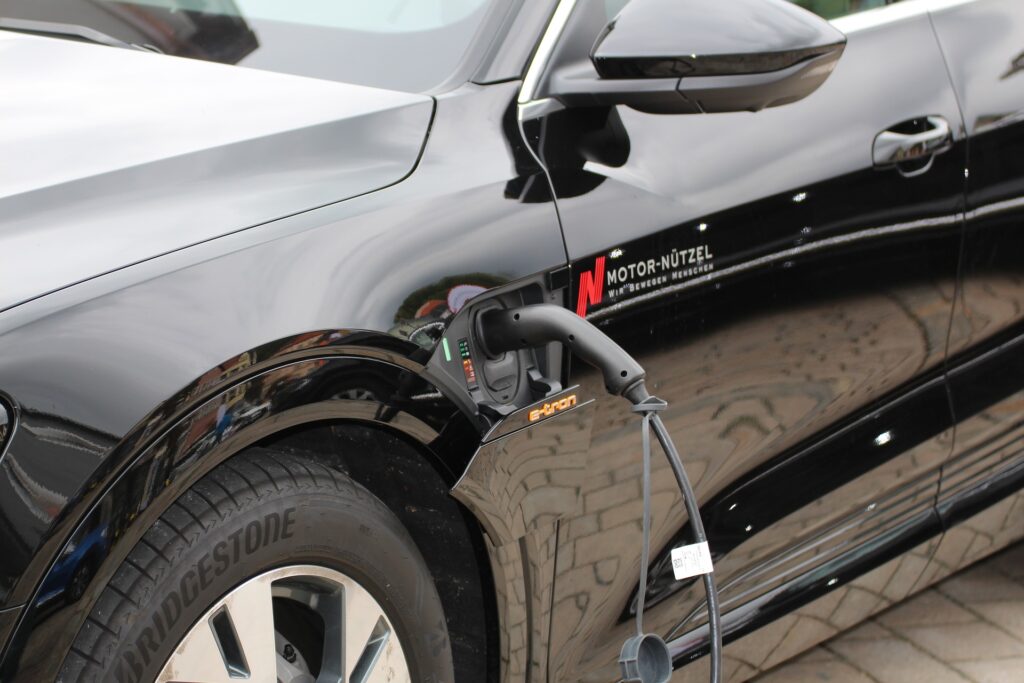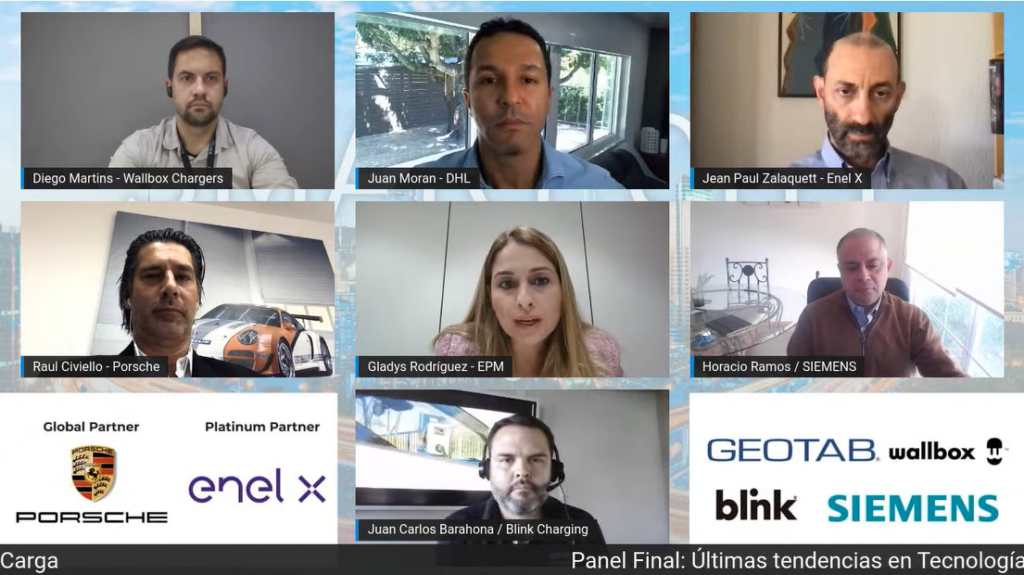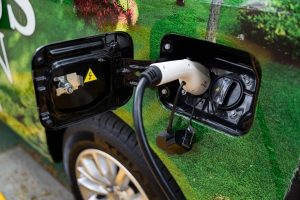
Leaders from Major Charging Infrastructure Companies in LATAM Propose Residential Charge as a Solution in the Region

Addressing the latest trends on electric vehicle technology and charging infrastructure, Latam Mobility organized a virtual meeting called Latam Smart Mobility & Cities Virtual Summit with key industry leaders from companies such as Alemautos Panama (Porsche), Blink Charging, Siemens, Wallbox, Enel X and EPM.
The discussion was moderated by the Global Customer Director of DHL, Juan Moran, who at the beginning of the debate consulted the speakers about the main challenges for the sector in Latin America.
“Electrifying mobility was a topic that was little talked about a decade ago. But in the last five years three important dimensions have been generated for the development of the sector: electrification of fleet mobility, logistics and passenger mobility”, said Moran.
When asked, the Senior Director of Blink Charging, Juan Carlos Barahona, emphasized that in order to promote charging infrastructure, opportunities must be given to private companies in different areas.
“Sectors such as housing development, shopping centers and vertical housing have seen electromobility as a new line of income. It is important for Latin American governments to take these concepts into account when making regulations,” said Barahona.
In the same vein, the Regional Manager Latam of Wallbox, Diego Martins, said: “Sometimes people are limited to acquire an electric vehicle because they do not feel that there is a charging infrastructure. But in Spain, for example, 85% of recharging is done at home, because this energy is more affordable, it is an option that we must promote”.
From the point of view of an electric vehicle manufacturer such as Porsche, the General Manager of Alemautos Panama (company representing the German firm) Raul Civiello, said that beyond the technical challenges, there is a cultural challenge.
“Latin America embraces electromobility in a different way than other regions. We must change the customers’ perception, the people, who have always charged their vehicles at a gas station, it is understandable that they wonder where are the gas stations, so we have to offer them a picture attached to the current conditions,” Civiello reflected.

Siemens: “We Must Generate a Change of Mentality in the Region”.
The Future Grids Manager of Siemens, Horacio Ramos, said: “We must change the collective mentality that we must have many charging points to be able to acquire an electric car, since this process can be done from home. This is a great challenge for Latin America”.
Likewise, Ramos mentioned that Siemens’ vision for the next 10 years is based on going step by step, and not getting ahead of nascent technologies. “If all the players join the necessary efforts, in five years we can be talking about hydrogen technologies, but first we have to address the charging infrastructure for plug-in vehicles.
Additionally, he stressed that the company participates in the entire process of energy generation and distribution.
EPM Suggests Facilitating Nationwide Charging
Gladys Rodríguez, Commercial Professional of EPM (Empresas Públicas de Medellín), commented: “Sometimes users contact us before buying an electric vehicle, mainly because they are unaware of the economic issue, what charging from home could cost them. We see that, by guiding them with the existing options, it generates some peace of mind”.
“What leads us to work beyond home charging, is to promote stations at the country level, so that people have the possibility to travel long distances without worries,” Rodriguez continued.
Enel X: “There Must Be Intelligence in Charging”.
Going into a future scenario where the use of electric vehicles is massive, the Head of e-Mobility Latin America of Enel X, Jean Paul Zalaquett, pointed out that in the long run, charging must be intelligent, with equipment connected to the cloud.
“The charger must decide whether charging is more effective at the time when there is more sun because there is a lot of photovoltaic power, or at night when there is more energy availability, since electrical systems could collapse if we all charge at 6:00 pm when we all go home. It really is an imperative need,” explained the Enel X representative in his presentation.
Prior to the closing of the day, Barahona concluded the meeting by highlighting: “This is the fourth time I have participated in a Latam Mobility meeting, and I would like to emphasize that in every one of the panels I have attended, the different actors coincide with the challenges we face”.





